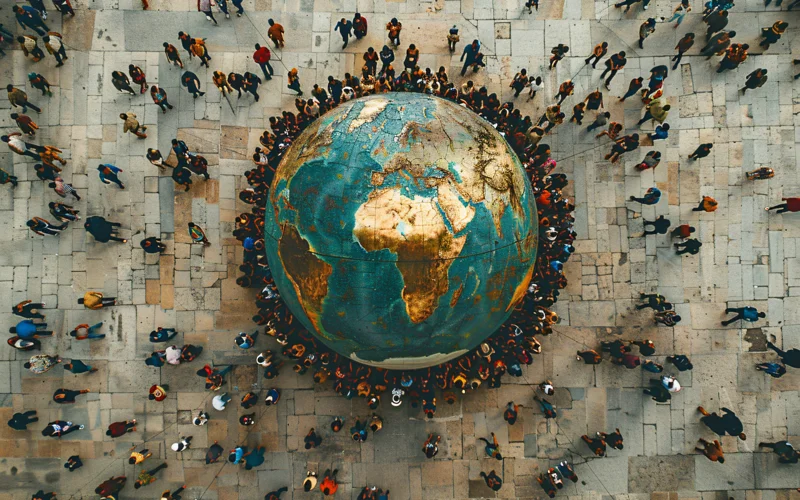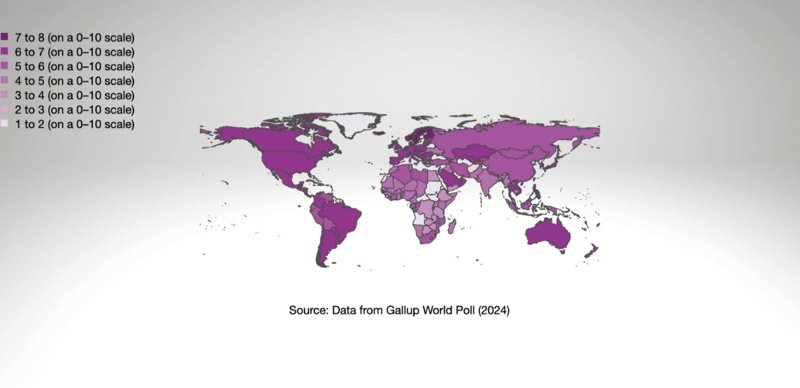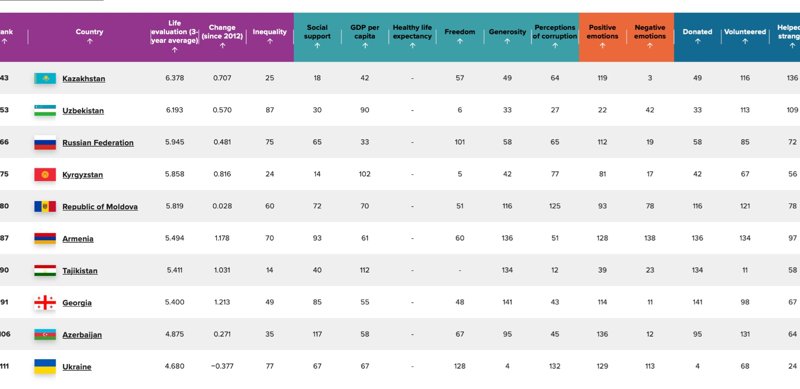World Happiness Report: Kazakhstan progresses, the importance of kindness and connection grows
Kazakhstan has moved up from 49th to 43rd place in the 2025 World Happiness Report. The 13th edition of the annual global rating identifies global patterns in happiness, as well as alarming shifts across regions, Kazinform News Agency correspondent reports.

Finland ranks first with a score of 7.736 out of 10 in the 2025 World Happiness Report, followed by Denmark, Iceland, Sweden and the Netherlands. Costa Rica and Mexico enter the top 10 for the first time, ranking sixth and tenth, respectively. The study also notes that, on average, people in Western industrialized countries are less happy:

“In general, the western industrial countries are now less happy than they were between 2005 and 2010. Fifteen of them have had significant drops, compared to four with significant increases. Three western countries had drops exceeding 0.5 on the 0–10 scale (the United States, Switzerland, and Canada) putting them among the fifteen largest losers.”
Central Asia, on the other hand, has shown steady improvement this year. With a score of 6.378, Kazakhstan moved up from 49th place last year to 43rd, just behind Argentina (42nd) and ahead of Guatemala (44th). Kyrgyzstan, Tajikistan, and Azerbaijan ranked 75th, 90th, and 106th, respectively, while Uzbekistan came in 53rd.

The key insights from this year’s edition focus on the contribution of kindness to well-being. Results of the experiments done show that lost wallets are returned 30% more often than people think, highlighting a global tendency to undervalue acts of kindness. However, charitable acts are still 10% higher than pre-COVID levels across all age groups worldwide.
Kindness and happiness inequality are directly linked. Data shows that countries with higher scores on acts of kindness had 15% less difference between their happiest and least happy communities. Notably, untied foreign aid increases the happiness levels of donor countries, while unplanned refugee flows lead to lower average scores for recipient countries. It is important to also note that, according to the study, the greatest positive impact on well-being comes from genuine, selfless acts that have a clear impact on both givers and recipients.
On the other hand, research shows that social isolation has reached critical levels, with 19% of young people worldwide lacking a strong support network, up 39% since 2006. The loneliness statistics in America are particularly alarming, with one in four people now eating alone, up 53% since 2003. The results reveal a dangerous cycle: young people avoid social risks that could reduce their isolation because they underestimate the empathy of their peers by 40%.
The downsides of living alone are also most obvious as single-person households generally perform worse in every region studied. In contrast, across geographic areas, four- to five-person households report the highest levels of happiness, with extended families in Mexico and Europe having the highest levels. However, the benefits are limited to five people as households with too many people are associated with 12% lower economic happiness. Eating together, on the other hand, may be the answer that increases life satisfaction, equal to the impact of wealth and work status.
The study calls on governments to create new measures of relationship quality, pointing out that policies that change housing prices or migration trends can have unintended consequences for family well-being. The researchers also recommend urban projects that support shared meals and spaces for intergenerational interaction in Europe, where 32% of people now live alone.

